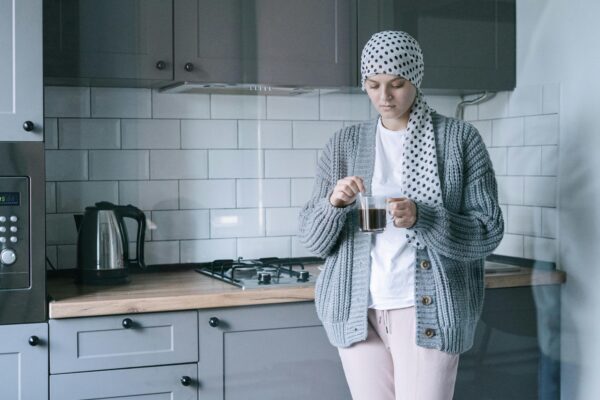
Breast cancer is a challenging journey, both physically and emotionally. While medical treatments are essential, many patients seek complementary ways to support their health and well-being. One such approach gaining attention is the consumption of green tea. Renowned for its antioxidants and potential health benefits, green tea offers a soothing and potentially supportive drink for those navigating breast cancer treatment. Let’s explore how green tea can be a comforting companion on this difficult path.

The Benefits of Green Tea for Breast Cancer Patients: Green tea is rich in polyphenols, particularly catechins, which are powerful antioxidants. These compounds have been studied for their potential anticancer properties, including their ability to inhibit the growth of cancer cells and reduce tumor formation. While research is ongoing, some studies suggest that green tea consumption may be associated with a lower risk of breast cancer recurrence and improved survival rates in breast cancer patients.
Moreover, green tea is known for its anti-inflammatory properties, which can help mitigate some of the side effects of cancer treatments, such as chemotherapy and radiation therapy. These side effects may include inflammation, oxidative stress, and fatigue, all of which can impact a patient’s quality of life.
Green tea is also a source of L-theanine, an amino acid that may help reduce anxiety and improve mood. For breast cancer patients, who often face significant emotional stress, incorporating green tea into their daily routine may offer a calming effect and promote mental well-being.

How to Incorporate Green Tea into Your Routine:
- Choose high-quality green tea: Look for organic, loose-leaf green tea or high-quality green tea bags to ensure you’re getting the most benefits.
- Brew it right: To maximize the health benefits, steep green tea in hot (not boiling) water for 2-3 minutes. Avoid over-steeping, as it can lead to a bitter taste.
- Enjoy it hot or cold: Green tea can be enjoyed hot or cold, depending on your preference. Add a squeeze of lemon or a sprig of mint for extra flavor.
- Limit caffeine intake: While green tea contains less caffeine than coffee, it’s still advisable to moderate your intake, especially if you’re sensitive to caffeine or experiencing sleep disturbances.
Safety Considerations: While green tea is generally safe for most people when consumed in moderation, it’s essential to consult with your healthcare provider before making any significant changes to your diet, especially if you’re undergoing cancer treatment. Some studies suggest that high doses of green tea extract may interfere with certain medications or treatments, so it’s best to err on the side of caution and seek professional advice.

In conclusion, green tea can be a comforting and potentially beneficial addition to the daily routine of breast cancer patients. Its antioxidant properties, anti-inflammatory effects, and calming qualities make it a soothing companion on the challenging journey of cancer treatment. As always, consult with your healthcare provider to determine the best approach for your individual needs and circumstances.

